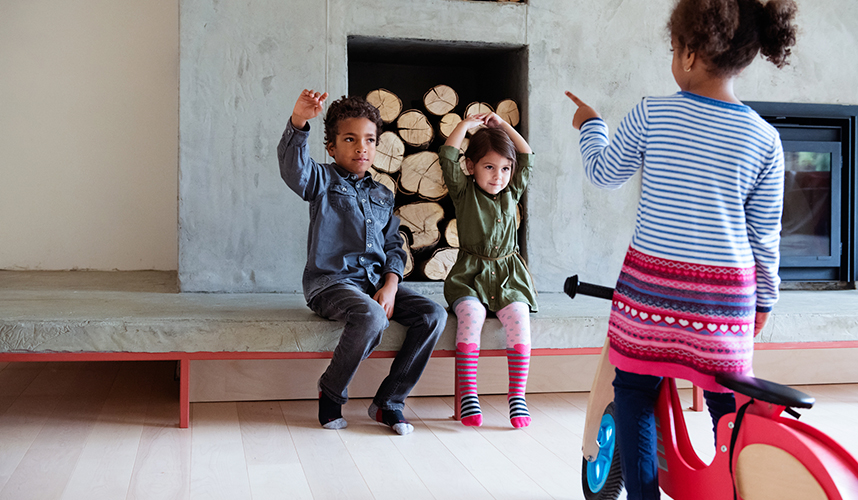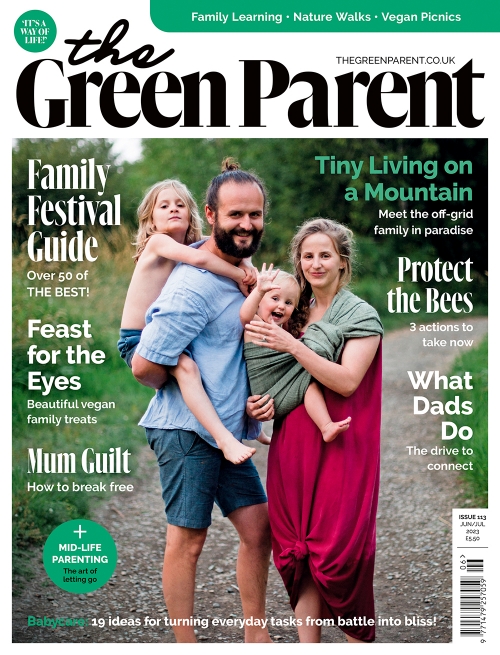Journalist, Heather Shumaker, wrote It’s Ok Not To Share and Other Renegade Rules for Raising Competent and Compassionate Kids when her sons were six and three years old.
The title comes from the idea that children should be allowed to play with a toy until they have finished, rather than hand it over as soon as another child asks for it. While this and the other “rules” – such as “Kids don’t have to say sorry”, “We’re not all friends here” and “Only punch friends” – may seem unconventional, they are firmly based in the expert work of psychologists and educators, and the experiences of parents over the years
How did you come to write It’s Ok Not To Share?
It’s inspired by my mother’s preschool, the School for Young Children, in Ohio. I attended the school as a four- and five-year-old. It’s a marvellous place. They let children box and wrestle and roughhouse as part of play in the classroom, and they don’t force children to share their toys. All this creates kids who are great at conflict mediation and who develop astonishing social and emotional skills. Since this type of school is rare – a place where adults truly trust and understand children’s needs – I decided to write the book and share its philosophy with other parents and teachers.
“Sometimes our efforts to control kids don’t meet anybody’s needs. It stresses out adults and restricts kids’ ideas”
There are 29 renegade rules in the book which can be summed up with one golden rule: it’s ok if it’s not hurting people or property. What are the benefits to children of this type of parenting?
As adults, we often get caught up in rule-making. Sometimes our efforts to control kids don’t meet anybody’s needs. It stresses out adults and restricts kids’ ideas. Parenting absolutely involves setting limits on kids, but before you set a new rule, ask yourself: is this play OK? Does it hurt people or property? Sometimes the play is OK, but you have to change its timing or location.
Children and adults both gain so much clarity. The overarching rule is simple, easy to remember and easy to understand. Kids gain awareness of others, understanding of limits, self-confidence and freedom to follow creative ideas in play.
Setting limits is so valuable. I don’t think we realize how critical this one piece of parenting is. Whether it’s an adult setting a reasonable limit on a child, or a child setting a limit on another child, the ability to stand up for yourself, say what you don’t like, and speak directly to the person involved, that’s deep work. It’s the work of diplomats and mediators. It’s the way to solve conflicts without fighting. It’s the basis of respectful communication and awareness of others. Kids gain so much from learning these skills of conflict mediation.
Our job is to raise good humans. Ones who are capable, kind and resilient. This is complex work, but it’s best achieved through allowing children to encounter the world and explore it through play. When kids develop emotional competency – the ability to express difficult feelings appropriately – and conflict mediation skills, then the world is theirs. Adults can guide children to gain these skills through the 29 Renegade Rules.
What would be a good first step for someone wanting to try out some of the renegade rules?
Start with sharing. It’s simple. It’s easy for two-year-olds to grasp. Kids like it and think it’s fair. You’ll see results pretty quickly, too. If you’ve been insisting on forced sharing in the past, however, be prepared for children to test you at first. This is normal. A child might purposefully hold onto a toy extra-long just to see if you really mean it. Stay strong and believe in the children. Once they trust you, they will tend to take shorter turns.
Pick another one or two rules after sharing. Make changes one step at a time, and move ahead with a new topic when you’re ready.
Which rule(s) have you found to be most useful with your own two sons?
One of the most helpful is “All feelings are OK. All behaviour isn’t”. That’s huge. It helps us look at the thrashing, angry child and say: “You can be mad, but you can’t hit me. People are not for hurting.” All young kids have big emotions, and this rule certainly has been helpful in our family.
I also love the Dictation rule. When a child is sad or angry, just take a pen and write down their feelings. Write down everything they dictate to you. It’s magical how effective it is, and how respectful. We use that a lot, and everyone who tries it, loves it.
Some of these unconventional “rules” might prompt some raised eyebrows from fellow parents at the playground. How do you suggest handling these situations?
Every family culture is different, and yes, you may get some raised eyebrows from other parents. Because of this, each chapter has a section specifically addressing how to handle using these renegade rules in public. One helpful method is to “sportscast” – say what you’re doing out loud so other parents can hear you. They may still disagree, but at least they know what you’re up to.
If a parent takes away one message from your book, what should it be?
Trust children. Trust their play ideas. Trust their emotions. Trust that their need to tackle each other and play fight is healthy and social. Trust that their need to thwap sticks in the mud is meeting their brain development requirements. Trust that they will develop social skills and generosity, and that they will share that toy – when they’re good and ready.
MORE INFORMATION
READ: https://heathershumaker.com
BUY: Her book, It’s OK to Go Up the Slide






